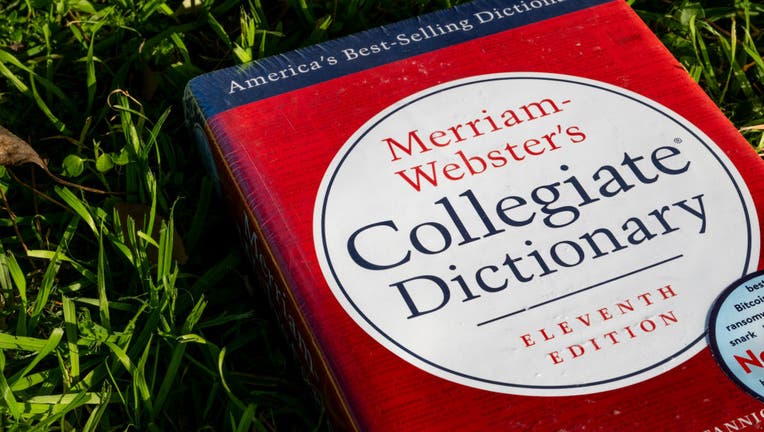Is it okay to end a sentence with a preposition? Merriam-Webster says yes

In a photo illustration, a Merriam-Webster's dictionary is seen placed on a lawn on January 11, 2024 in Austin, Texas.
LOS ANGELES - Can you conclude a sentence with a preposition? It's the latest internet debate causing frustration among many.
Last week, Merriam-Webster, an authority on the English language, posted on social media saying that it "is permissible in English for a preposition to be what you end a sentence with."
"The idea that it should be avoided came from writers who were trying to align the language with Latin, but there is no reason to suggest ending a sentence with a preposition is wrong," the post continued.
The post garnered more than 36,000 likes as of Feb. 29 and hundreds of comments weighing in on the controversial topic.
"This account is doing the Lord's work," wrote one user.
"No. Saying ‘where are you at?’ Is just so redundant and unnecessary!" responded another.
What's a preposition, and can you end a sentence with it?
A preposition is a word used to show the relationship between a noun or pronoun and other elements in a sentence.
They indicate location, direction, time or the relationship between different parts of a sentence.
Common examples of prepositions include words like "in," "on," "at," "under," "above," "behind," "between," and "beside."
For example, in the sentence "The book is on the table," "on" is the preposition that shows the relationship between the book and the table.
A quick Google search on whether they can be used at the end of the sentence will indicate that the simple answer is "sometimes," although the usage has been debated in the past.
In this video posted by the popular YouTube English page "Espresso English," she says it is ok to end a sentence with a preposition in everyday, informal English but not in formal English.
Here are some examples of how it might be used in everyday informal settings:
- "What are you looking at?"
- "That's the book I was telling you about."
- "Who are you going with?"
Merriam-Webster’s FAQ page states: "The people who claim that a terminal preposition is wrong are clinging to an idea born in the 17th century and largely abandoned by grammar and usage experts in the early 20th."
Who made up this rule?
Merriam-Webster says that 17th-century poet John Dryden was to be praised for popularizing the grammar rule created by Joshua Poole.
In 1672, as reported by the publisher, Dryden criticized poet-playwright Ben Jonson for his tendency to place prepositions at the end of sentences, which was described as a common fault. Decades earlier, it was noted that Poole had expressed concern about prepositions being positioned "in their natural order."
"Untold millions of people have suffered in the subsequent years as a result," the Merriam-Webster entry added.

